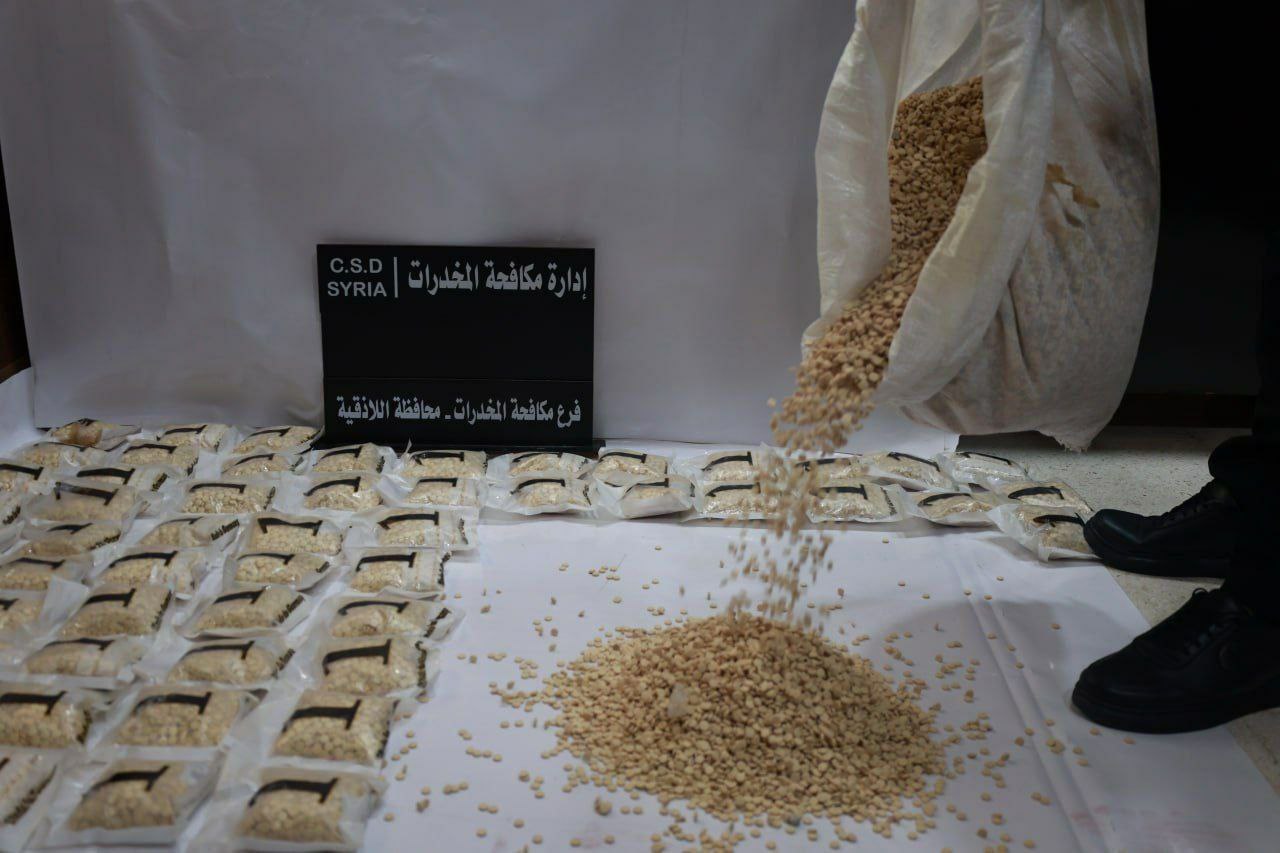
Syrian security forces have intensified operations targeting narcotics production and trafficking, with several major seizures reported across the country in recent weeks. On October 9, the Ministry of Interior announced the confiscation of 240 kilograms of cannabis from a farm near Douma, northeast of Damascus. The raid, carried out jointly by the Anti-Narcotics Branch and the Internal Security Directorate in Douma, led to the arrest of the farm’s owners, who were referred to judicial authorities for prosecution.
Earlier, on September 22, the ministry reported that officers at the Nassib border crossing uncovered narcotics hidden inside soft drink containers. The seized drugs included 54 kilograms of crystal meth, 17.5 kilograms of hashish, and 43,000 Captagon pills. The main suspect, tracked through an investigation, was arrested at his residence, according to the ministry’s statement.
Border Operations Strengthen Regional Coordination
Syria’s anti-narcotics campaign has also expanded through cooperation with neighboring countries. In a joint statement on October 5, the Syrian and Jordanian interior ministries said seven smuggling attempts were foiled along the shared border, resulting in the seizure of about one million narcotic pills. Officials credited intelligence sharing and coordinated patrols for disrupting criminal networks active in cross-border trafficking.
Customs officers at the Jdeidet Yabous crossing west of Damascus also seized 40 kilograms of hashish smuggled from Lebanon. The General Authority for Land and Sea Ports said the drugs were discovered after officers noticed suspicious behavior from the driver, underscoring the vigilance of daily inspections at key entry points. Around 200,000 Captagon pills hidden in a vehicle coming from Lebanon, were seized on the October 18 at the same crossing.
Cooperation with Turkey and Renewed Domestic Efforts
Syria’s collaboration has not been limited to Jordan. On September 2, the Anti-Narcotics Department and Turkish intelligence conducted a joint operation in the Yafour area of the Damascus countryside, uncovering 500 kilograms of raw drug-manufacturing materials and large quantities of Captagon pills concealed in food containers and buried vessels. The ministry said the discovery marked a first in bilateral coordination between Damascus and Ankara.
In Aleppo, two major operations this month resulted in the seizure of 425,000 Captagon pills and over 20 kilograms of hashish. The suspects, arrested after surveillance and investigation, were referred to the judiciary, the Interior Ministry said in a statement posted on Facebook.
Ongoing Commitment Despite Persistent Challenges
Interior Minister Anas Khattab reaffirmed the government’s “unwavering commitment to combating drugs and protecting Syria’s present and future,” according to a ministry release. His remarks followed a June report by the UN Office on Drugs and Crime, which warned that Syria remains a major node in regional drug production despite recent government crackdowns.
The fall of the Assad regime exposed extensive Captagon production networks once linked to the former Fourth Division and Hezbollah. Since then, the new Syrian government has intensified its pursuit of traffickers, resulting in a sharp decline in smuggling to neighboring countries, particularly Jordan. Officials say ongoing cooperation and border monitoring remain essential to fully dismantle the remnants of Syria’s narcotics trade.








